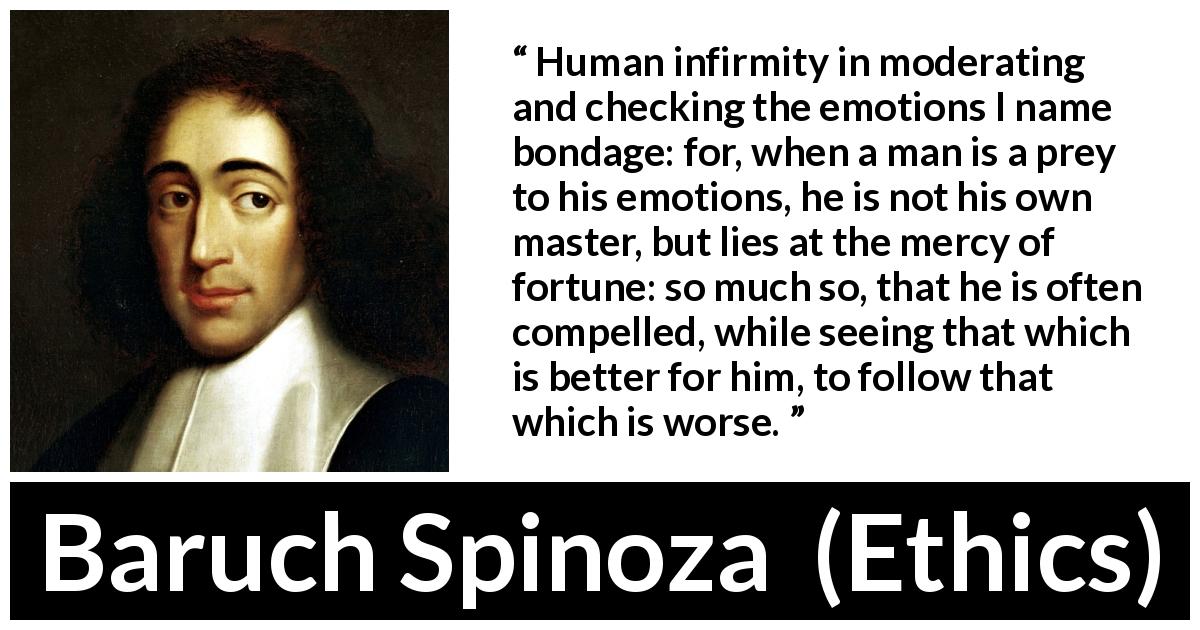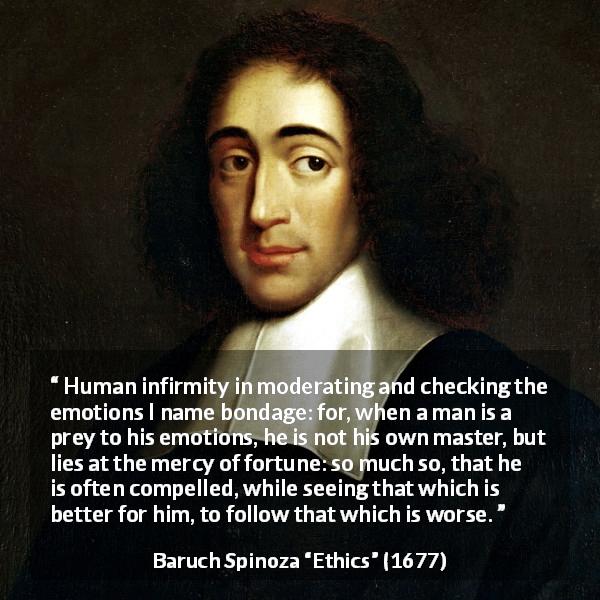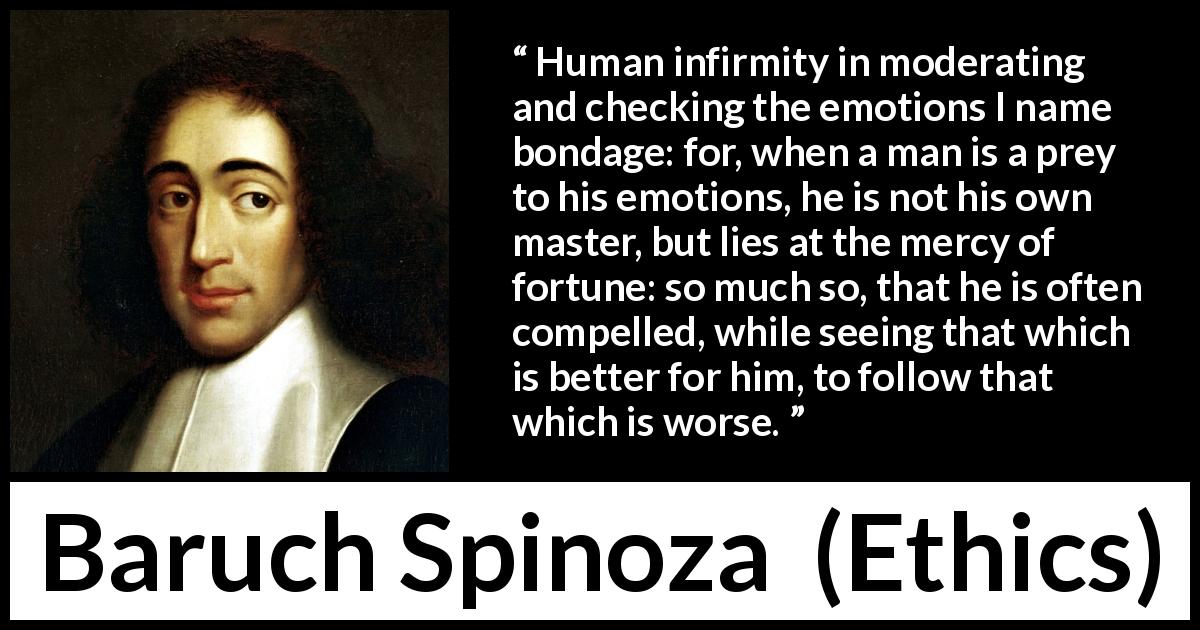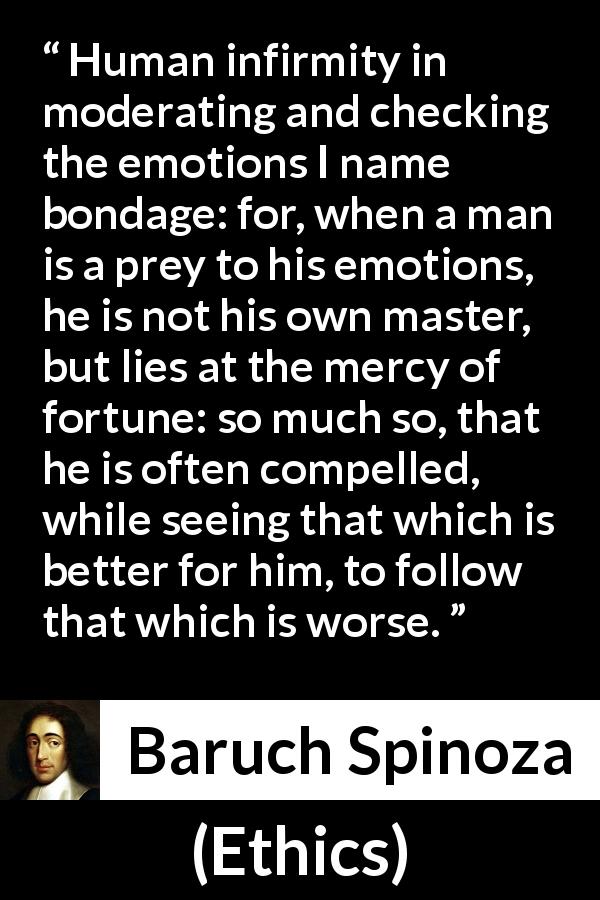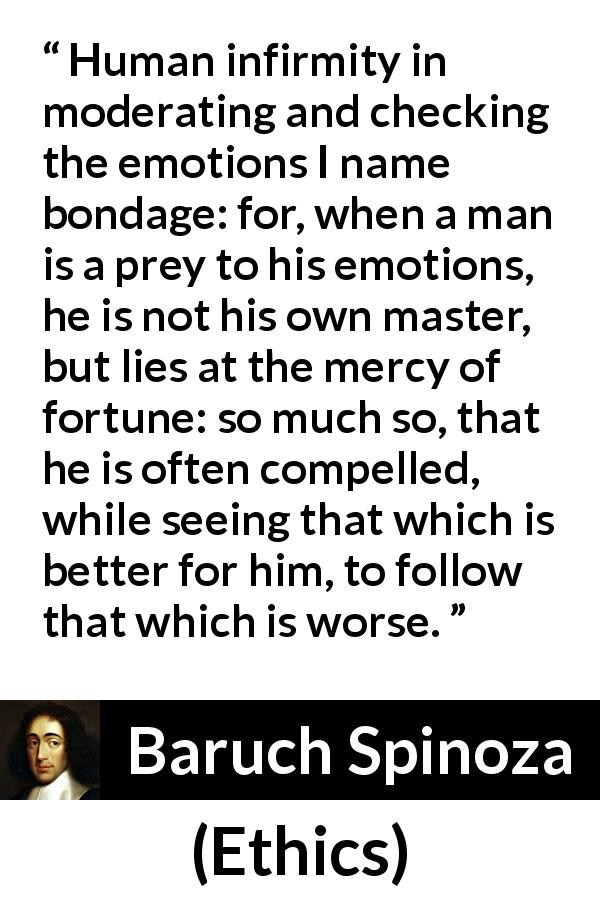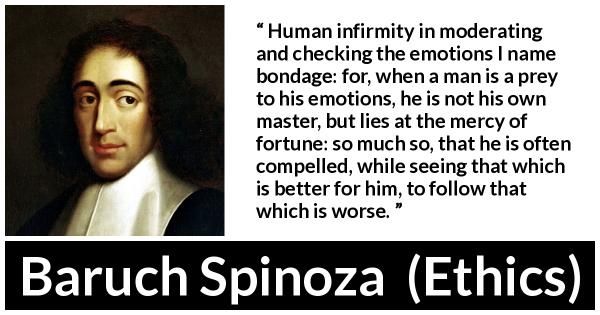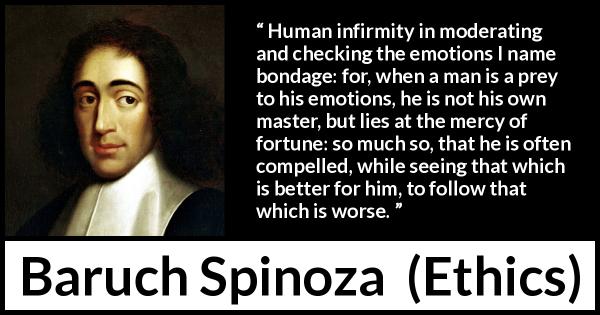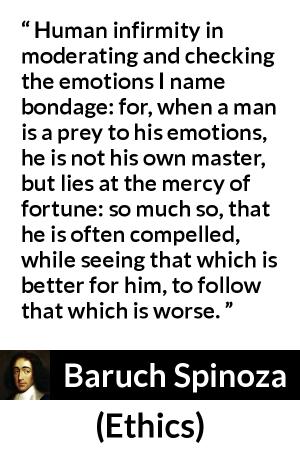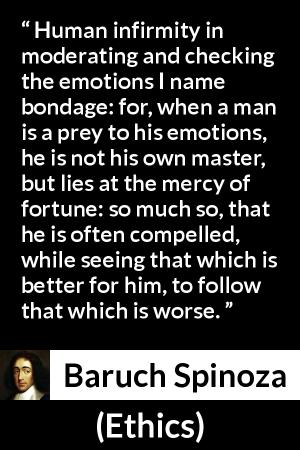“ Human infirmity in moderating and checking the emotions I name bondage: for, when a man is a prey to his emotions, he is not his own master, but lies at the mercy of fortune: so much so, that he is often compelled, while seeing that which is better for him, to follow that which is worse. ”
Baruch Spinoza, Ethics (1677). copy citation
| Author | Baruch Spinoza |
|---|---|
| Source | Ethics |
| Topic | emotions fortune moderation |
| Date | 1677 |
| Language | English |
| Reference | |
| Note | Translated by R. H. M. Elwes |
| Weblink | http://www.gutenberg.org/files/3800/3800-h/3800-h.htm |
Context
“Lastly, I have added by the presence of which the mind is determined to think of one thing rather than another, so that, besides the nature of pleasure and pain, which the first part of the definition explains, I might also express the nature of desire.
PART IV: Of Human Bondage, or the Strength of the Emotions Preface Human infirmity in moderating and checking the emotions I name bondage: for, when a man is a prey to his emotions, he is not his own master, but lies at the mercy of fortune: so much so, that he is often compelled, while seeing that which is better for him, to follow that which is worse. Why this is so, and what is good or evil in the emotions, I propose to show in this part of my treatise. But, before I begin, it would be well to make a few prefatory observations on perfection and imperfection, good and evil.” source
PART IV: Of Human Bondage, or the Strength of the Emotions Preface Human infirmity in moderating and checking the emotions I name bondage: for, when a man is a prey to his emotions, he is not his own master, but lies at the mercy of fortune: so much so, that he is often compelled, while seeing that which is better for him, to follow that which is worse. Why this is so, and what is good or evil in the emotions, I propose to show in this part of my treatise. But, before I begin, it would be well to make a few prefatory observations on perfection and imperfection, good and evil.” source
